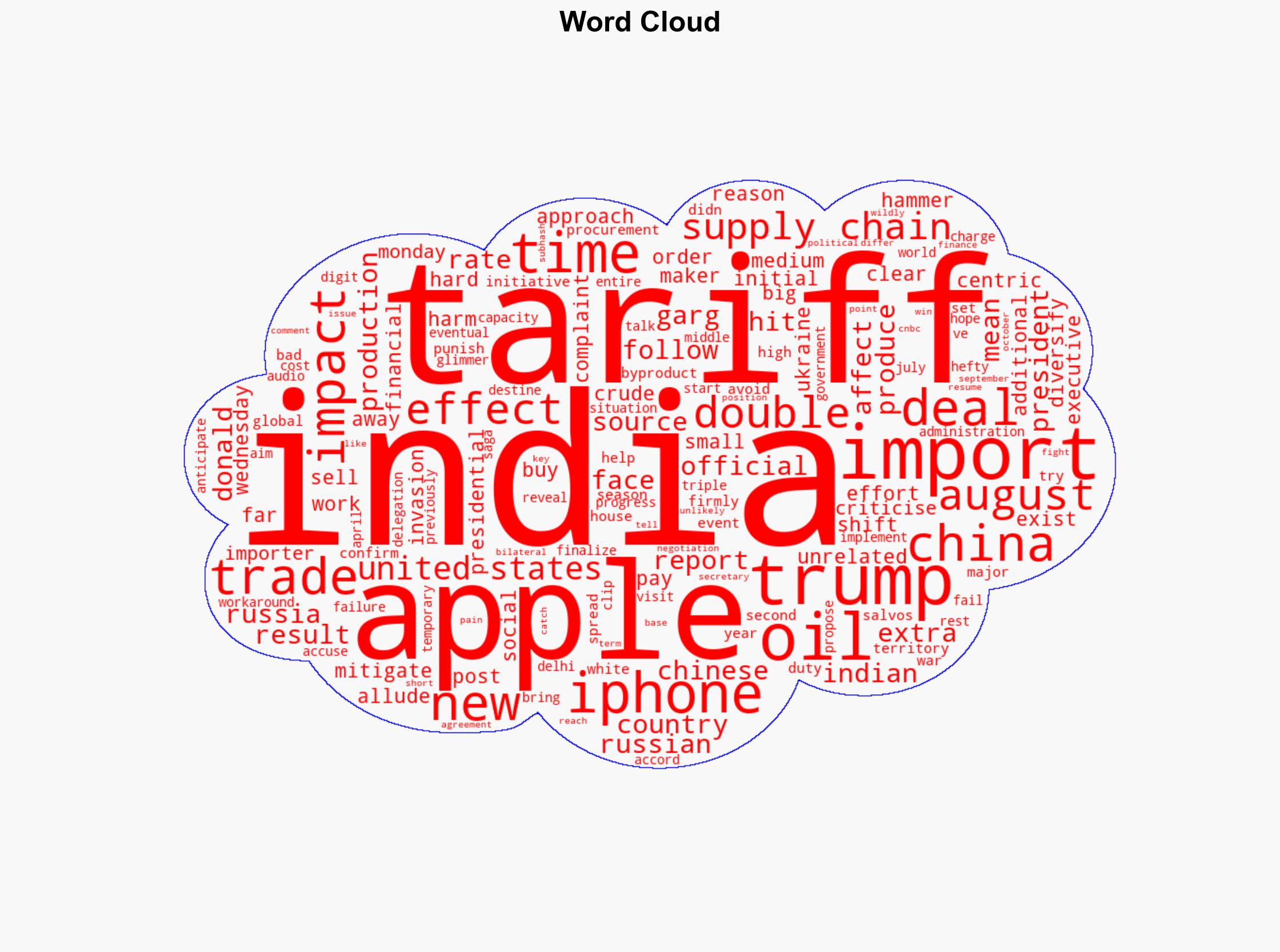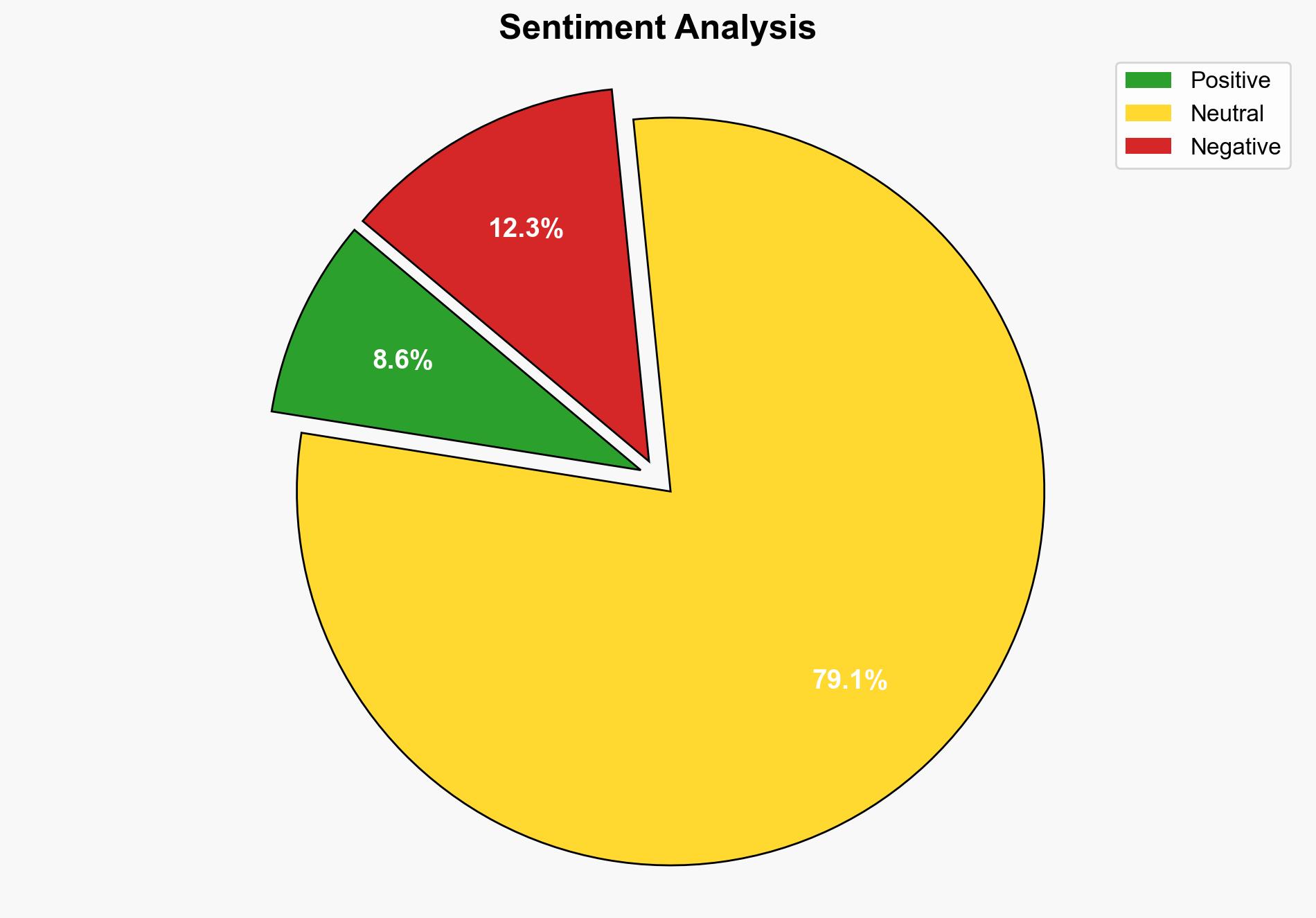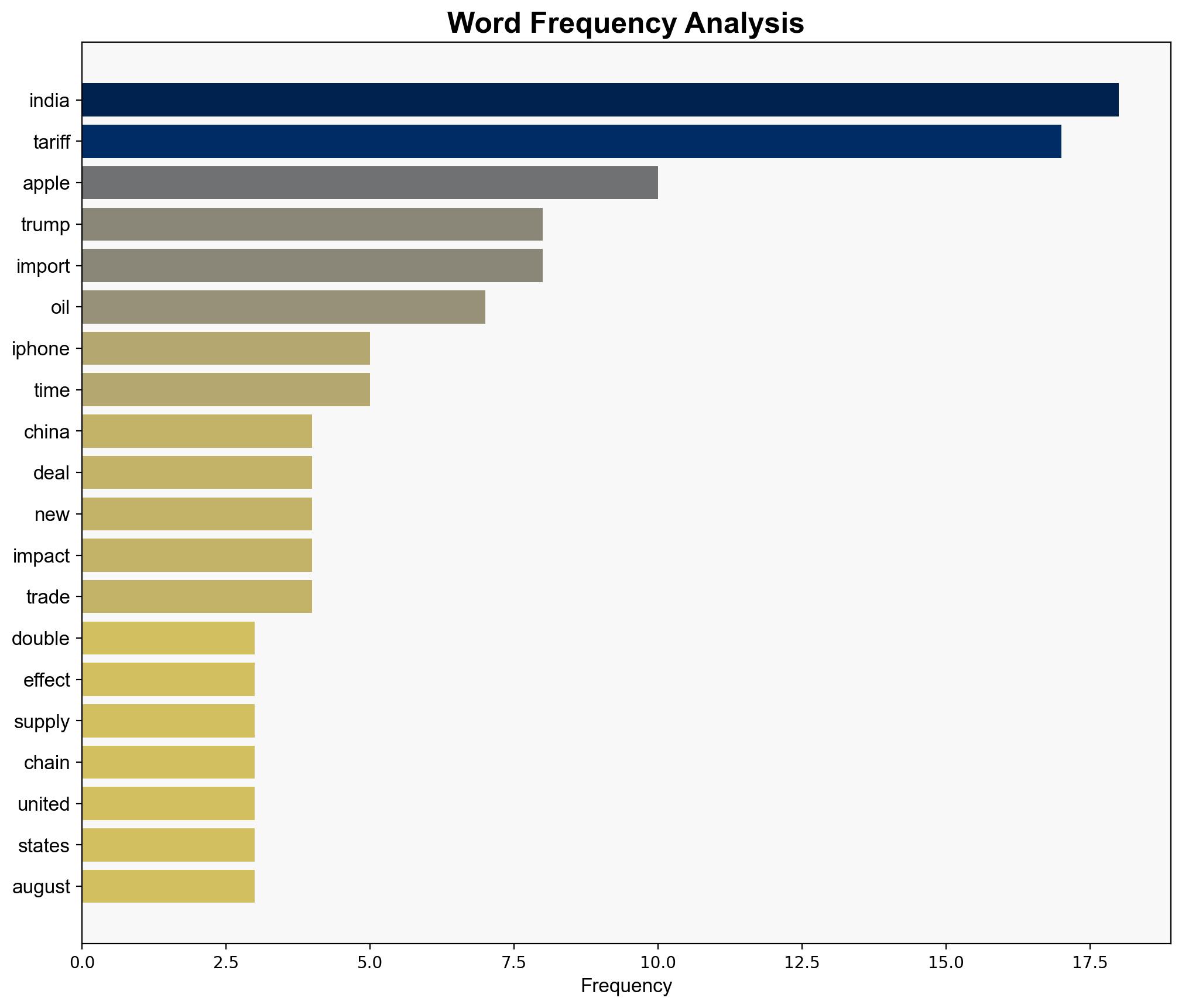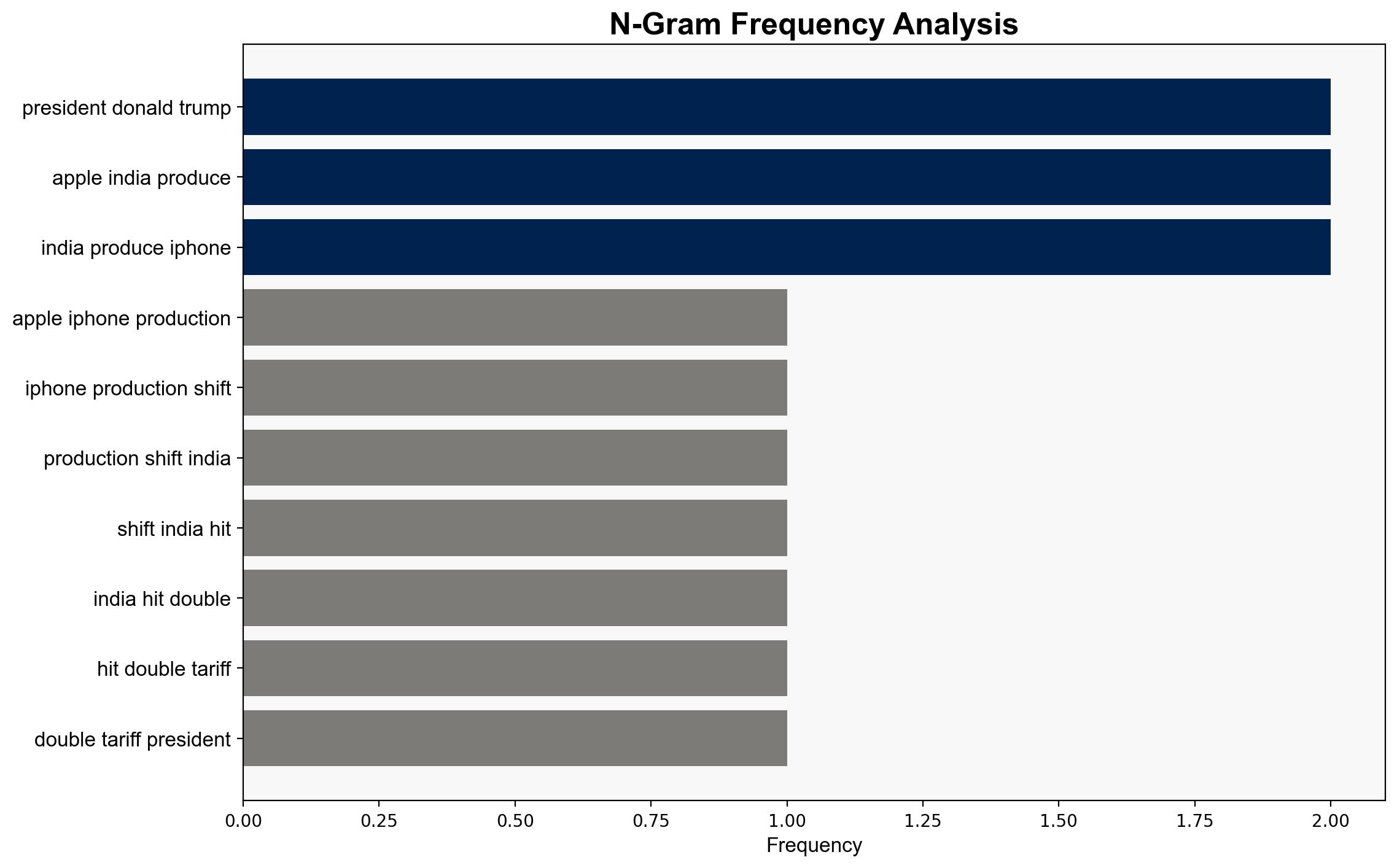Apple’s iPhone manufacturing plan hit by Trump doubling tariffs on India – AppleInsider
Published on: 2025-08-06
Intelligence Report: Apple’s iPhone manufacturing plan hit by Trump doubling tariffs on India – AppleInsider
1. BLUF (Bottom Line Up Front)
The most supported hypothesis is that the increased tariffs are primarily a geopolitical maneuver by the U.S. to pressure India regarding its oil imports from Russia. This action indirectly impacts Apple’s supply chain diversification efforts. Confidence level: Moderate. Recommended action: Apple should accelerate its supply chain diversification strategy and engage in diplomatic efforts to mitigate tariff impacts.
2. Competing Hypotheses
1. **Geopolitical Pressure Hypothesis**: The tariffs are a strategic move by the U.S. to pressure India to reduce its oil imports from Russia, using economic leverage to influence India’s foreign policy decisions.
2. **Economic Protectionism Hypothesis**: The tariffs are primarily aimed at protecting U.S. economic interests by discouraging imports from India, thereby encouraging domestic production and reducing trade deficits.
Using ACH 2.0, the Geopolitical Pressure Hypothesis is better supported due to the context of India’s increased oil imports from Russia and the timing of the tariff imposition following public criticism by the U.S. president.
3. Key Assumptions and Red Flags
– **Assumptions**: It is assumed that the tariffs are directly linked to India’s oil trade with Russia and not merely a routine economic policy. Another assumption is that Apple has no immediate alternative to mitigate the tariff impact on its supply chain.
– **Red Flags**: The lack of explicit linkage between the tariffs and oil imports in official statements raises questions about the true intent. The absence of a detailed response from Apple on how it plans to address these tariffs is also notable.
4. Implications and Strategic Risks
– **Economic Risks**: Increased production costs for Apple could lead to higher prices for consumers or reduced profit margins.
– **Geopolitical Risks**: The tariffs could strain U.S.-India relations, potentially affecting broader diplomatic and economic cooperation.
– **Supply Chain Risks**: Apple’s reliance on India as a manufacturing hub could be jeopardized, prompting a need for rapid diversification to other regions.
5. Recommendations and Outlook
- Apple should expedite its efforts to diversify its supply chain beyond India and China to mitigate geopolitical risks.
- Engage in diplomatic channels to seek tariff exemptions or reductions, leveraging industry influence and economic impact arguments.
- Scenario Projections:
- Best Case: Tariffs are reduced following successful negotiations, minimizing impact on Apple’s operations.
- Worst Case: Tariffs remain, leading to increased costs and strained U.S.-India relations.
- Most Likely: Partial tariff relief is achieved, but Apple must still adjust its supply chain strategy.
6. Key Individuals and Entities
– Donald Trump
– Apple Inc.
– Indian Government Officials
7. Thematic Tags
national security threats, economic policy, supply chain management, U.S.-India relations





